Faculty
View all History faculty.
Terri Barnes
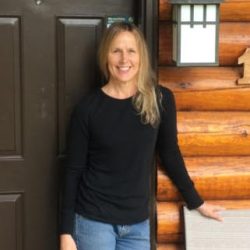 Part-time faculty
Part-time faculty
Background
I am a native Oregonian and have lived in Portland all my life, though I have traveled extensively in Europe and spend summers in Iceland doing research and writing. I have been teaching at PCC since the fall of 2004. History is my passion, and I am glad to have a career where I can share it with people every day. My educational background includes a Bachelor of Arts degree in Art History and a Master’s degree in History, both from Portland State University.
Research and interests
My primary area of historical interest and research is medieval England and Iceland during the Viking Age. I also study Scandinavia during the same period. As a social and cultural historian, I am very interested in microhistory, which delves deeper into elements of everyday life rather than focusing on grand sweeping events. My goal has always been to try and walk alongside the people of the past to understand who they were, how they lived, what they valued, and what motivated them. I am also interested in how modern people engage with the past and for what purpose, particularly the Vikings who command a deep fascination for so many.
You can find my work published in Quidditas: The Journal of the Rocky Mountain Medieval and Renaissance Association, Essex Journal, Community College Humanities Review, Medieval Magazine, Medieval Warfare, and on Medievalists.net. I also cohost a podcast about Viking history called Vikingology: The Art and Science of the Viking Age which you can find at vikingology.substack.com.
Christopher Brooks
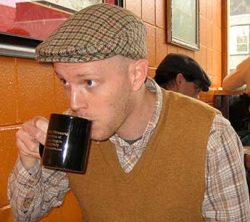 Full-time faculty
Full-time faculty
Background
I’m a native Portlander, although I grew up in various spots up and down the Willamette Valley. I went to the Robert D. Clark Honors College at the U of O for my BA in history, graduating in 2000. After that, I spent four years working in the corporate IT field back in Portland, then returned to the U of O in 2004 to earn a MA in history. I liked graduate study so much, I decided to take the plunge and pursue a doctorate. I moved to Santa Cruz, California in 2006 to attend UCSC (best known outside of academia for its mascot, the banana slug), where I focused on intellectual history, French history, world history, and political theory. I spent time in France researching my dissertation, then returned and completed my doctorate in 2010.
After wrapping things up in Santa Cruz, my wife and our new daughter and I moved back to Portland, where we’d wanted to be the whole time. Between 2010 and 2012, I was both a part-time faculty member at PCC and a corporate systems administrator and business analyst. I was fortunate enough to be hired as a full-time faculty member at Sylvania in 2012 and I have taught every term, except some summers and a one-term sabbatical, since then.
Outside of my work as a faculty member, I listen to music, hang out with my family and friends, and cook a lot of fairly elaborate meals (I’m an especially big fan of Indian, Mexican, Thai, and French cooking). I’m a dyed-in-the-wool Portlander, and I’m proud to be part of an institution as important to the Portland area as PCC.
Research and interests
My dissertation is entitled Exile: An Intellectual Portrait of Andrá Gorz. It is an intellectual biography of the Austrian-born French philosopher Andrá Gorz, an important member of the existential philosophical cohort associated with Jean-Paul Sartre and Simone de Beauvoir in post-WWII France. My dissertation reflects my interest in intellectual history(the history of ideas), as well as the intersection between philosophy and political theory; Gorz himself was a philosopher, a journalist, and a political theorist.
At PCC, the biggest development in my teaching career in the last several years has been the creation of a world history curriculum for the college. World history is the comparative history of societies and cultures that uses case studies to carry out a thematic overview of some of the major events and changes in the history of the world since the invention of agriculture. I received a sabbatical in 2020 (right as the pandemic hit) to develop the curriculum, and since then I’ve been lucky enough to teach the courses, share the material with my colleagues, and develop them in both the remote and online modalities. Since the world history courses do not require any previous knowledge about history, my major focus in them is explaining some of the narratives – the essential “stories,” based on factual evidence – of history itself. Examples include the creation of agricultural civilization, the development and evolution of world religions, the evolution of various political systems, and the transitions between historical eras.
In addition, I have taught PCC’s course on the history of the Holocaust since 2012. I regard teaching the Holocaust course as the most important duty I perform at PCC. There, I try to balance an appreciation for the gravity of the topic – the murder of millions of innocent people – with the necessity of analyzing what happened, why it happened, and perhaps most importantly, how it could have happened.
Finally, I am actively engaged in serving the college community in various ways. I have been the chair of the college’s assessment council, the chair of the History Department, the lead or co-lead of various college workgroups, and a member of several committees. I regard college service as an essential aspect of what I do, and I balance my time and energy between teaching and serving the college in the important, behind-the-scenes work of college service that keeps the institution up and running.
Ken Coleman
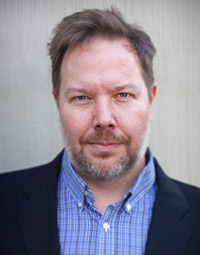 Part-time faculty
Part-time faculty
Background
I am originally from California but moved to Beaverton, Oregon at age seven. I have lived most of my adult life in Portland. I became fascinated by the study of history somewhat later in life and left a career in marketing to pursue it full-time. I earned a BA in English at the University of Oregon and an MA in History at Portland State University.
Research and interests
y main field is the history of the American West and, more specifically, the Pacific Northwest. While I am predominately a social historian with a focus on settler colonialism and the history of racism in the United States, I am also interested in cultural and environmental history.
In 2017, OSU Press published my first book, Dangerous Subjects: James D. Saules and the Rise of Black Exclusion in Oregon. It describes the life and times of Saules, a black mariner who was shipwrecked off the coast of Oregon and settled there in 1841. In Oregon, Saules encountered a multiethnic population already transformed by colonialism – in particular, the fur industry and Protestant missionaries. In 1843, once the Oregon Trail emigrants began arriving in large numbers, Saules had to adapt to a new reality in which Anglo-American settlers persistently sought to marginalize and exclude Black residents from the region.
Robert Flynn
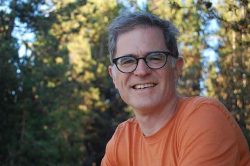 Full-time faculty
Full-time faculty
Sylvia Gray
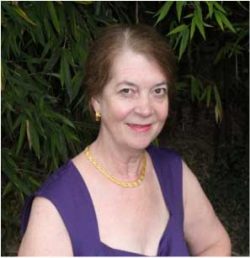 Part-time faculty
Part-time faculty
Background
I retired in 2022 and will still teach a class once in a while. It’s a good life!
But here is my story. While living in Italy in my twenties, I was faced numerous times with my historical ignorance. In Italy, even very non-scholarly people had an idea who Julius Caesar or Machiavelli or Napoleon was, and although I had heard of some of these people, I had no idea where they fit in the grand scheme of things! So when I returned to the States, at age 31 I took my first college class at Portland Community College: Western Civilization. A number of years later, I graduated with my Master of Arts in History from Portland State University (PSU). At PSU I focused on the Western classical period (Romans and Greeks), and my minor focus was early modern European history, and I also took classes on Asian history. If you are interested in a short version of my life and how I came to teach at PCC, listen to the graduation speech I gave in June 2012, during PCC’s 50th-year celebration.
I love teaching! Western Civilization courses have been my “bread and butter” throughout the last 20+ years, but I also taught Classical History and beginning Latin at Marylhurst University for a number of years. When a need developed at PCC, I began to teach Asian history, including the history of the Middle East, India, China, Japan, and Korea. These courses have called on my earlier experiences of living in Japan for one year, courses in Asian history at PSU, continuing education through the East-West Center’s Asian Studies Development Program (ASDP), and focused study/travel through the CIEE.
I have published one book: Ask the Ancients: Astonishing Advice for Daily Dilemmas. I wrote this because I wanted to share many fascinating and accessible writings in existence from 1500 or more years ago. I am now working on another. My research in a doctoral program in education at Oregon State University concentrated on the many challenging issues related to the overuse of part-time faculty in community colleges. The working title of my upcoming book is Adjunctivitis.
As for my hobbies, I love to play classical piano and my husband and I often host house concerts. Where you see “Classical Beauties” listed – that’s the trio I perform with.
Peter Hohn
Part-time faculty
Erik Johnsen
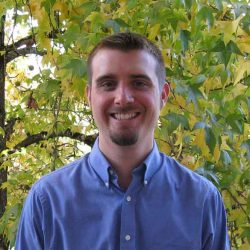 Part-time faculty
Part-time faculty
Andrea Lowgren
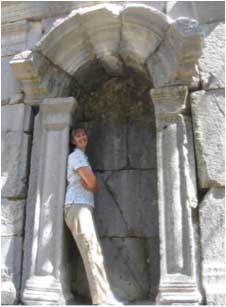 Full-time faculty
Full-time faculty
Background
I was born and raised in Napa, California, and moved to Oregon in 1995 to do a BA in History and Music with a minor in Spanish at Linfield College followed by a MA in musicology at the University of Oregon. Afterward, I went to Santa Cruz, California for my doctoral education. I received my Ph.D. in History in 2007 and that fall I moved to Portland to teach full-time at Portland Community College in both History and Women and Gender Studies.
Research and interests
My research interests are in the histories of women, sexuality, race, and urban geography. My dissertation, “City Limits: Reputation and the Sexual Cartography of Women’s Mobility in Mid-twentieth-century San Francisco” shows how for women, the politics of space was the politics of sex. My research mapped the urban expressions of women’s sexuality in nightclubs, red-light districts, and on neighborhood streets through the categories of work, entertainment, state policing, and sexual violence. Concern about reputation led to self-imposed limitations of urban mobility that combined with state regulation and sexual violence to create surprisingly resilient geographic boundaries for women. Understanding how the containment of women’s mobility was built into a society’s ideas about sexuality helps to explain how and why restrictions on women’s movements seemed invisible and complete, providing a new lens for understanding the gendered inequality of urban spatial freedom.
During my 2018 sabbatical, supported by a grant from the Mellon/American Council of Learned Societies, I conducted oral histories of staff, faculty, and students of Portland Community College who immigrated to the United States from over twenty countries. Their narratives cover such topics as education, economic hardships and opportunities, family, marriage, documentation status, citizenship, gender, sexuality, war, violence, xenophobia, refugee camps, religion, politics, and language and are collected in this open educational resource ebook: The Reasons We’re Here: Oral Histories of Immigration at Portland Community College.
My professional interests are currently focused on teaching. I orient my classes towards understanding the structural relationships of power in history to help explain present-day inequities, provide avenues for truer reconciliation, and hopefully direct students toward greater global consciousness and meaningful citizenship. I also think that place-based learning can bring history alive. And if I cannot take my students with me, I want to expand my study in a geographically-focused manner because I think it offers an invaluable immediacy to the teaching of history. When I tell the story of an event or a people, I also describe the world they lived in – the sights and sounds of their world and the effects of this environment on people’s ideologies and actions. For this reason, I love to travel. I have visited more than thirty countries; some of the places that I’ve visited and studied are Haiti, Nicaragua, Cuba, Guatemala, Colombia, El Salvador, Kenya, Tanzania, Ethiopia, Turkmenistan, Jordan, Vietnam, Thailand, Cambodia, Turkey, Bosnia, Croatia, Mexico, and most of the US.
James McConnell
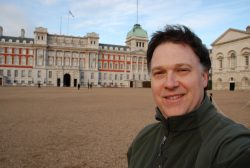 Part-time faculty
Part-time faculty
Charlie Presti
Part-time faculty
John Shaw
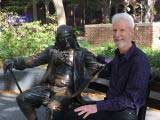 Part-time faculty
Part-time faculty
Background
John grew up where George Washington led the Continental army across the Delaware River and surprised the Hessian garrison at Trenton, NJ on Christmas day 1776. One of his earliest childhood memories recalls his parents bundling him up on Christmas mornings to watch the annual reenactment. This sparked his lifelong interest and passion for history, culminating in an M.A. in American Indian Studies, and a Ph.D. in History.
John has taught Native American and U.S. history courses for American Indian Studies, American Multicultural Studies, and History departments at the University of Arizona (1996-2003), Minnesota State University – Moorhead (2004-2005), and Portland Community College (2005 – present).
As an Instructor, his emphasis is on facilitating the learning process and serving as a catalyst to get everyone engaged in exploring history. Looking at historical eras, events, and persons through a variety of perspectives, helps us develop the ability to think critically. Critical thinking motivates us to make independent discoveries and develop ideas, values, and career plans while becoming lifelong learners.
Research and interests
In graduate school, his American Indian Studies concentration focused on federal Indian Law and Policy. A colleague informed him about a compelling microfilm of an eloquent prayer, address, and legal brief on behalf of the Turtle Mountain Band of the Pembina Chippewa. Compiled by Métis/Ojibwe tribal citizen and attorney John B. Bottineau, these inspiring documents provided a unique Indigenous perspective on the injustices of federal policy. This resulted in his dissertation and book focused on one Native community’s political struggle with the U.S. government: “In Order That Justice May Be Done”: The Legal Struggle of the Turtle Mountain Band of Pembina Chippewa, 1795-1905. The tribes’ legal battles for land, sovereignty, and justice derived from the power to narrate their own side of the story, confirming that North Dakota’s most populace Indigenous community remains a powerful people with a compelling history. In addition, he contributed three entries to Making it in America: A Sourcebook on Eminent Ethnic Americans (2000), ten entries to The Encyclopedia of United States-American Indian Policy, Relations, and Law (2008), and several book reviews for UCLA’s American Indian Culture and Research Journal and the New Mexico Historical Review.
Chris Shelley
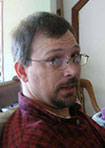 Full-time faculty
Full-time faculty
Ken Wilson
Part-time faculty
I have been teaching at PCC since 2011 after receiving my Bachelor’s and Master’s degrees at California State University Northridge in 2009 and 2011 respectively. At CSUN I won several awards including Best Undergraduate and Best Graduate papers and was a member of the American Indian Student Association. Prior to teaching, I worked many different jobs including a career as a roadie/stagehand for over 25 years. I returned to college after a 20-year hiatus, I had played basketball for George Mason University until an ankle injury ended my playing days and I lost my scholarship. I was an assistant coach for our champion Men’s basketball team who won the NWACC title in 2014 after 30 years of losing seasons and never making the playoffs. I am a member of the Portland Community College Athletic Hall of Fame. I also work as an Academic Adviser. In my spare time, I listen to music, buy and sell records and music memorabilia, read history books and westerns, do crossword puzzles, and travel when possible.
